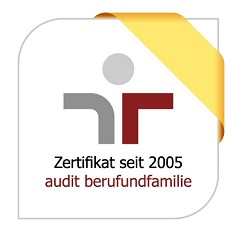PhD Position in the field of Sphingolipid Biology and Disease
Kennziffer: 2025-0011
- Heidelberg
- Full-time
- Lipid Pathobiochemistry

„Forschen für ein Leben ohne Krebs“ – das ist unsere Aufgabe am Deutschen Krebsforschungszentrum. Wir erforschen, wie Krebs entsteht, erfassen Krebsrisikofaktoren und suchen nach neuen Strategien, die verhindern, dass Menschen an Krebs erkranken. Wir entwickeln neue Methoden, mit denen Tumore präziser diagnostiziert und Krebspatient:innen erfolgreicher behandelt werden können. Jeder Beitrag zählt – ob in der Forschung, in der Administration oder der Infrastruktur. Das macht unsere tägliche Arbeit so bedeutungsvoll und spannend.
The research group “Lipid Pathobiochemistry“, headed by PD Dr. Roger Sandhoff, is currently offering a
The research group “Lipid Pathobiochemistry“ investigates the endogenous and pathological functions of sphingolipids. Sphingolipids are a complex class of membrane lipids, but contain also some important extra and intracellular signaling molecules. The cell-specific sphingolipid patterns found depend on cell differentiation, cell activation, but also cell transformation, e.g. to cancer cells. The ganglioside GD2, a glycosphingolipid, for example is expressed quite selectively on various tumor cells and is prominent in neuroblastoma. Sphingolipids in turn modulate cellular processes like proliferation, type of differentiation or activation, and can also influence the potential of tumor cells to metastasize. We investigate their functions with the help of genetically engineered in vitro and in vivo models with functional assays. To determine the specific composition of sphingolipids in our model systems, we have developed chromatographic and mass spectrometric-based methods in our lab.
Our research group is embedded into the department “Tumor Metabolism and Microenvironment” headed by Prof. Dr. Almut Schulze. Progress report seminars and Journal Club are held together. The department is part of the research topic “Cell and Tumor Biology” with common scientific retreats and access to the highly sophisticated scientific infrastructure of the German Cancer Research Center.
Ihre Aufgaben:
- Investigation of the impact of pathologically disturbed sphingolipid metabolism on the viability and function of cancer cells and normal cells in vitro and in vivo
- Characterization of pathological sphingolipid derivatives
- Preparation of scientific presentations and publications
Ihr Profil:
- Master's degree in biochemistry, biology, chemistry or related disciplines
- Proficiency in genetic engineering and biochemical methods, assay development, and cell culture as well as mass spectrometric analytics are desired
- Good knowledge of biochemistry
- FELASA certificate is of advantage
- Excellent command of written and oral English with proof of proficiency (not required for applicants from EU and North America)
Unser Angebot:
- Hervorragende Rahmenbedingungen: modernste state-of-the-art Infrastruktur und Möglichkeit zum internationalen Austausch auf Spitzenniveau
- Zugang zu internationalen Forschungs-Netzwerken
- Doktorandengehalt mit den üblichen Sozialleistungen
- 30 Tage Urlaub
- Flexible Arbeitszeiten
- Möglichkeit zur Teilzeitarbeit
- Familienfreundliches Arbeitsumfeld
- Nachhaltig zur Arbeit: Vergünstigtes Deutschland-Jobticket
- Entfalten Sie Ihr volles Potenzial: gezieltes Training und Mentoring durch das DKFZ International PhD Program und den DKFZ Career Service
- Unser betriebliches Gesundheitsmanagement bietet ein ganzheitliches Angebot für Ihr Wohlbefinden
Sie sind interessiert?
Dr. Roger Sandhoff
Telefon: +49 (0)6221/42-1424
Bewerbungen per E-Mail können leider nicht angenommen werden.
Bitte beachten Sie auch, dass wir per Post eingereichte Bewerbungen nicht zurückschicken können.

